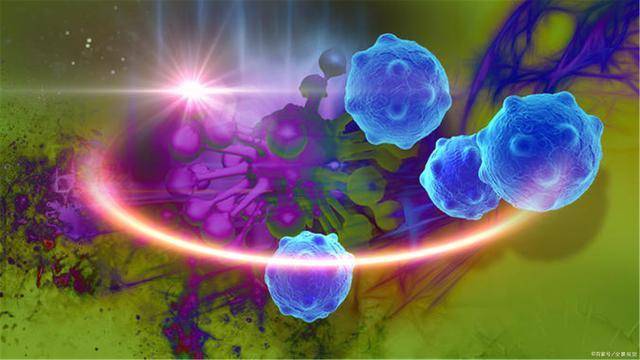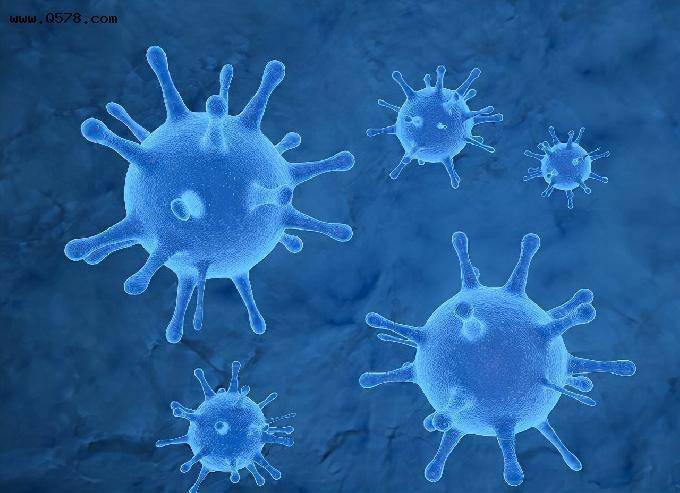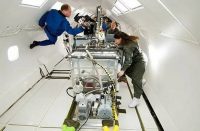After cancer cells appear, interventional therapy is usually selected. The traditional surgery is to directly remove the tumor, and the interventional surgery is to compress the blood vessels of the cancer cells, so that the cancer cells cut off the supply of the cancer cells without nutrients, and finally “starve to death”.

So is it true or false about “starving” cancer cells? So let me share it with you next.
01
Is it true or false to “starve” cancer cells? Doctors tell the truth, the earlier they knew, the earlier they benefited
First of all, I would like to share with you the conclusion that starving cancer cells to death is not true, because we have never heard that you can starve cancer cells by not eating or not eating staple food.
For decades, scientists have been working hard to study the problem that tumors are difficult to treat. In 1971, Judah Folkman first proposed that “the growth of tumors depends on blood vessels”, thus creating a new field of research on the mechanism of tumorigenesis and providing new ideas for tumor treatment. , new options for anti-tumor angiogenesis have emerged.

What is “tumor angiogenesis”?
The value-added of tumor drugs requires the absorption of sufficient nutrients from the surrounding temperature environment. Tumor cells produce large amounts of angiogenic factors and release them into the blood, which induce capillaries and form new capillary networks.
Tumors are the basis for the subsequent growth and development of solid tumors. Tumor metastasis is a very complex process. More and more studies have shown that blood vessels absorb benign tumors and grow slowly, while most malignant tumors have dense blood vessels and grow too fast.
Thus, angiogenic tumor development and metastatic processes play an important role. Inhibiting this process will significantly stop the development and spread of tumor tissue, leading to the formation of anti-tumor blood vessels.
The production of anti-tumor blood vessels is to block the growth of blood vessels and enter the tumor so that the tumor cannot obtain nutrients, so as to achieve the legendary effect of “starvation”. This is the truth of the effect of “starve cancer cells”.
“Starve cancer cells”, pay attention to the method
For decades, scientists have been studying how to suppress cancer by cutting off the nutrient supply to tumor cells. Such attempts often fail because of the peculiarity of cancer cells “cunning”, so there are many ways to provide nutrients and maintain growth.
Now, scientists at the University of Washington School of Medicine have exploited a common weakness in cancer cell metabolism to force cancer cells to expose their alternative nutrient supply. After identifying alternative methods, the researchers also identified drugs that could inhibit these methods.
The researchers now plan to conduct a small clinical trial evaluating the treatment in cancer patients, published in CellReports.
By studying mice implanted with human cancer cells, the researchers discovered a dual-attack approach (attacking the common vulnerability of cancer cells and an alternative feeding approach) with the potential to treat multiple cancers.
While this common weakness occurs in many cancers, it is especially common in sarcomas (rare cancers of fat, muscle, osteochondral, and connective tissue). Currently, the treatment of sarcoma mainly includes traditional surgery, radiotherapy and chemotherapy, but these treatments are usually ineffective.
“This metabolic defect is found in 90 percent of sarcomas, but not in healthy cells,” said study author Brian A. VanTine, Ph.D., assistant professor of medicine. “Since this therapy targets only cancer cells, fundamentally, This therapy allows us to starve the cancer cells.”
The researchers’ approach relies on the loss of the ability of most sarcoma cells to make arginine, because cancer cells must have the basic material to grow and proliferate.
Without this ability, cancer cells must obtain arginine from the surrounding environment, because there is a sufficient supply of arginine in the blood, cancer cells do not have to worry about starvation, but if arginine is removed from the environment, cancer cells will face a big problem.
Unlike healthy cells, sarcoma cells depend on arginine in the environment. After removing arginine from the environment, cells begin the process of autophagy to stay alive, and a second blow to their survival pathway can kill cancer cells.
“When we use drugs to deplete arginine in the blood, the cancer cells start to panic because the cancer cells have lost their energy supply and they ‘rewire’ to survive.
The “reconnect” used in this study, unlike most cancer treatments, consumes arginine in the blood without damaging healthy cells. Normal cells do not rely on external arginine because they do not have the metabolic defect of cancer cells and they continue to use their own arginine.
Normal cells don’t starve because there’s no arginine in the blood, and VanTine shuts down only the tumor’s metabolism, leaving other cells unaffected, depending on the tumor’s characteristics.
If arginine is not available from the outside, the tumor cell’s energy supply will be forced inside. Cancer cells must begin to metabolize arginine within themselves, a process called autophagy.
In sarcomas, this state slows or stops the growth of cancer cells, but doesn’t kill them, and the cancer cells take time to find other solutions for themselves.
When the energy supply is cut off, cancer cells do not die. We identified these methods and then described how the drug kills cancer cells. Studies have shown that in this condition, the tumor shrinks. This is the first time a method has been found to shrink tumors using only metabolic drugs.
An arginine-depleting drug is in clinical trials to test its effectiveness against lung, liver, pancreatic, breast and other cancers. So far, the drug has had no effect, possibly because it activates alternative feeding pathways that allow cancer cells to continue to grow.
The drug could still be used as a cancer metabolic therapy in combination with other drugs targeting alternative feeding pathways, the researchers said.
If cancer cells with this metabolic defect are deprived of arginine, they switch from one state using glucose) to another ( using glutamine).
They found that adding a glutamine inhibitor to the arginine-removing drug killed cancer cells. Removing arginine also allows cancer cells to use serine, another backup energy source. Therefore, adding serine inhibitors can also kill cancer cells.
This approach can be used not only for sarcomas, as many other tumors also have this metabolic defect, including some types of breast cancer. colon cancer. lung cancer. brain cancer and bone cancer.
The data from this study showed that this approach also demonstrated antitumor responses in these cancer cell lines, and VanTine also noted that some of the drugs used in the study have been approved by the FDA in clinical studies, and the drugs are still in clinical studies.
Based on this research, Siteman, Washington University School of Medicine, VanTine, and his colleagues are planning a clinical trial of the arginine drug in sarcoma patients.
02
How can I reduce the risk of cancer?
no smoking, no drinking
2. Eat a balanced and reasonable diet. Good eating habits
3. Change concepts and cultivate awareness of cancer prevention
4. Exercise regularly
5. Avoid staying up late and avoid overwork
6. To prevent cancer, you should also pay attention to “nourishing the heart”



GIPHY App Key not set. Please check settings